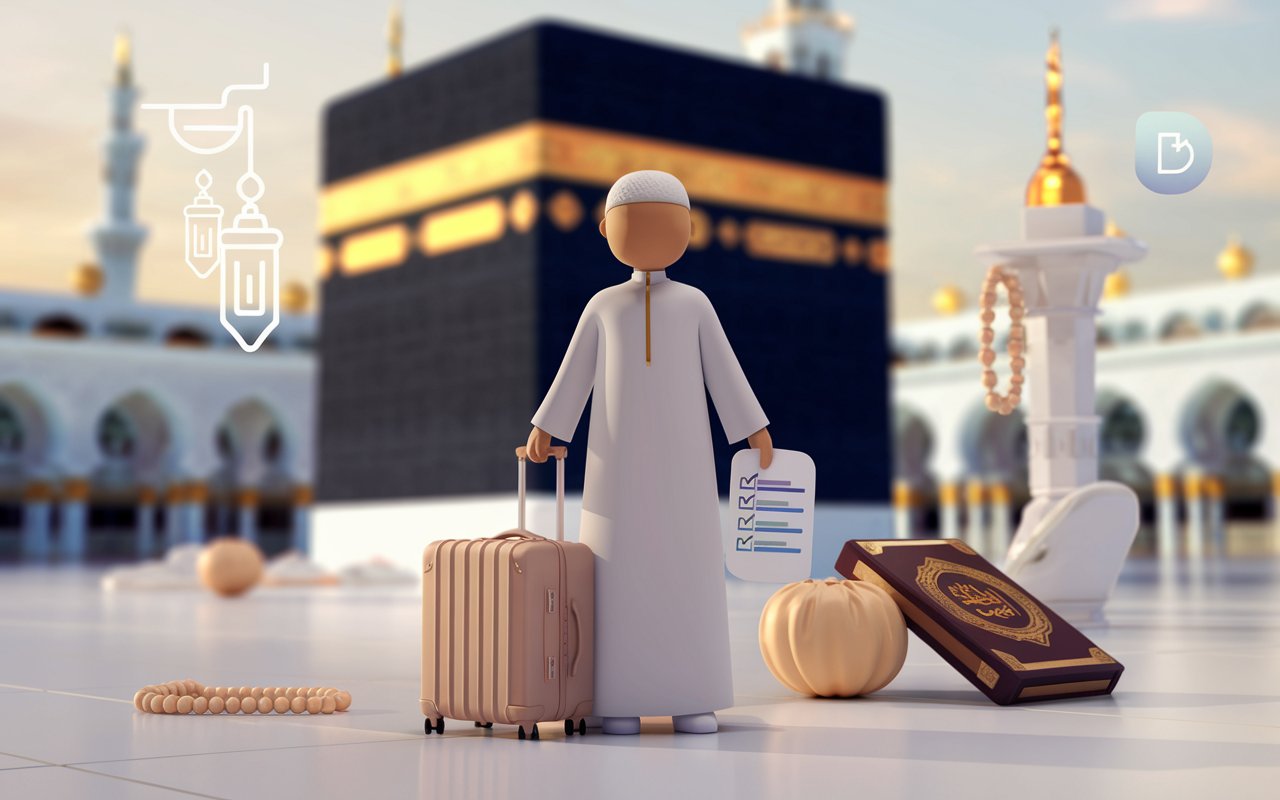Embarking on the sacred journey of Hajj is a profound milestone in a Muslim’s life, symbolizing devotion, unity, and spiritual renewal. To ensure a fulfilling and transformative experience, comprehensive preparation is essential. This guide delves into the spiritual, physical, and practical aspects of preparing for Hajj, offering insights and tips to help first-time pilgrims embark on this journey with confidence and peace.
Understanding the Spiritual Significance of Hajj
Hajj, the fifth pillar of Islam, is an annual pilgrimage to Mecca that every Muslim must undertake at least once in their lifetime, provided they are physically and financially able. It commemorates the trials and triumphs of Prophet Ibrahim (Abraham) and his family, serving as a profound act of worship and a demonstration of the unity and equality of Muslims worldwide.
Spiritual Preparation
- Strengthening Faith and Intentions
- Sincere Intention (Niyyah): Begin by purifying your intention solely for the sake of Allah. Reflect on the purpose of Hajj and commit to performing it with sincerity and devotion.
- Increase in Worship: Engage in additional prayers, recitation of the Quran, and remembrance of Allah (Dhikr) to spiritually prepare for the journey.
- Seeking Knowledge
- Study Hajj Rituals: Familiarize yourself with the rites and rituals of Hajj, including Ihram, Tawaf, Sa’i, standing at Arafat, and the stoning of the Jamarat. Understanding these practices enhances the spiritual depth of the pilgrimage.
- Attend Seminars and Workshops: Participate in educational sessions offered by local mosques or Islamic centers to gain practical insights and clarifications on Hajj rituals.
- Repentance and Forgiveness
- Seek Forgiveness: Engage in sincere repentance for past sins and seek forgiveness from those you may have wronged. Clearing your conscience allows for a more focused and spiritually uplifting experience.
- Settle Debts: Ensure all debts are settled before departure, as fulfilling financial obligations is crucial in Islam.
Physical Preparation
- Health Assessment
- Medical Check-Up: Schedule a comprehensive health examination to address any medical concerns and ensure you’re fit for the physical demands of Hajj.
- Vaccinations: Obtain required vaccinations, such as meningitis and influenza, as mandated by health authorities. Consult your healthcare provider for additional recommendations.
- Fitness Regimen
- Walking Routine: Incorporate regular walking into your daily routine to build stamina, as Hajj involves extensive walking. Start with shorter distances and gradually increase to mirror the pilgrimage’s demands.
- Strength and Flexibility Exercises: Engage in exercises that enhance muscle strength and flexibility to prevent injuries during the pilgrimage.
- Diet and Hydration
- Balanced Nutrition: Adopt a balanced diet rich in fruits, vegetables, lean proteins, and whole grains to boost immunity and energy levels.
- Hydration: Maintain adequate hydration by drinking sufficient water daily, preparing your body for the hot climate of Mecca.
Practical Preparation
- Documentation and Legalities
- Passport and Visa: Ensure your passport is valid for at least six months beyond your return date. Apply for the Hajj visa through authorized agencies, adhering to the specific requirements of your country.
- Travel Insurance: Purchase comprehensive travel insurance that covers health, travel delays, and emergencies.
- Financial Planning
- Budgeting: Outline a detailed budget covering all expenses, including travel, accommodation, meals, and contingencies.
- Currency Exchange: Exchange currency in advance and consider carrying a mix of cash and internationally accepted credit/debit cards.
- Packing Essentials
- Ihram Garments: Pack at least two sets of Ihram clothing. For men, this consists of two white, unstitched cloths; for women, modest clothing that meets Islamic guidelines.
- Comfortable Footwear: Choose comfortable, breathable sandals or shoes suitable for long walks.
- Personal Hygiene Items: Include unscented soaps, shampoos, and other toiletries, as scented products are prohibited during Ihram.
- First Aid Kit: Carry a basic first aid kit with band-aids, pain relievers, antiseptics, and any personal medications.
- Portable Prayer Mat and Quran: Bring a lightweight prayer mat and a travel-sized Quran for personal worship.
- Travel Arrangements
- Flight and Accommodation: Book flights and accommodations well in advance through reputable agencies. Consider proximity to the Haram for convenience.
- Transportation: Arrange for transportation within Saudi Arabia, including transfers between Mecca, Mina, Arafat, and Muzdalifah.
- Communication
- Stay Connected: Inform family and friends of your itinerary. Consider international roaming plans or local SIM cards for communication.
- Emergency Contacts: Keep a list of emergency contacts, including local embassy details and healthcare facilities.
Mental and Emotional Preparation
- Setting Realistic Expectations
- Embrace Patience: Understand that Hajj is a journey filled with challenges. Cultivate patience and resilience to navigate crowded spaces and unforeseen circumstances.
- Focus on Spiritual Goals: Prioritize spiritual growth over comfort. Embrace the essence of Hajj as a test of faith and endurance.
- Cultural Sensitivity
- Respect Diversity: Hajj brings together Muslims from diverse backgrounds. Approach interactions with respect, understanding, and an open heart.
- Learn Basic Arabic Phrases: Familiarize yourself with common Arabic phrases to enhance communication and enrich your experience.
Conclusion
Embarking on Hajj is a profound spiritual journey that requires meticulous preparation across various dimensions. By investing time in spiritual, physical, and practical preparations, you pave the way for a transformative and fulfilling pilgrimage.





